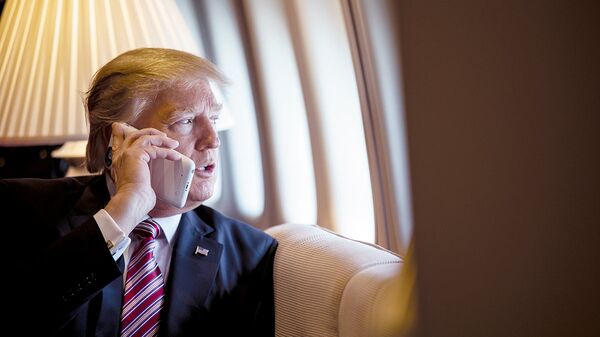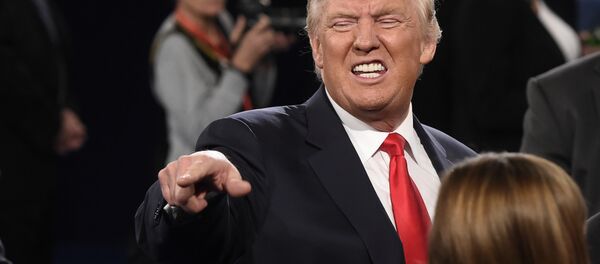Iran has brushed away aside President Trump’s claims that bilateral talks are imminent, saying that "threats, sanctions and PR stunts won't work."
Tehran has responded coolly to Trump's offer, dismissing it as worthless and "a humiliation" after he acted to re-impose sanctions on Tehran following his withdrawal from the 2015 nuclear deal.
"Threats, sanctions & PR stunts won't work. Try respect: for Iranians & for (international) commitments," Iran’s Foreign Minister Mohammad Javad Zarif wrote on Twitter.
He added that Iran had held two years of talks with the US and that had produced “a unique nuclear deal” with the EU, Russia and China.
The Iranian military was equally opposed to Trump’s overture.
"The Iranian people do not authorize officials to meet the Great Satan… Mr. Trump, Iran is not North Korea," the Commander of the Revolutionary Guards, General Mohammad Ali Jafari, wrote in an open letter.
Some officials remained more receptive though.
"Negotiations with the United States must not be a taboo," Heshmatollah Falahatpisheh, head of parliament's foreign affairs commission, told the semi-official news agency ISNA.
When speaking at a rally in Tampa, Florida on Tuesday, Donald Trump said that "I have a feeling they'll be talking to us pretty soon… And maybe not, and that's OK too," before customarily slamming as “a horror show” the nuclear deal Iran and world powers inked in 2015.
Following the official rejection of Trump’s offer for talks, many Iranians have been snapping up goods, wary of the possible impact of the full US sanctions, which return on Monday.
In another sign of the impending crisis, the national currency, the rial, has lost two-thirds of its value since the start of the year, plunging to a whopping 109,000 to the US dollar.
Trump’s overture towards Iran came a week after he threatened the country with “consequences the likes of which few throughout history have ever suffered before,” in an all-caps tweet.
READ MORE: 'Taken Hostage': Trump Duped by Saudis on Iran Oil Sanctions — Tehran Official
Wary of Iran’s growing clout in the region, the United States has been ramping up pressure on Tehran and is urging its allies in the world to stop buying Iranian oil in a bid to choke off a major source of the country’s revenue.
At a press briefing in July, Brian Hook, director of policy planning for the US State Department, said that Washington’s sanctions on Iran would snap back on August 6 and “include targeting Iran's automotive sector, trade in gold, and other key metals."
He added that the remaining sanctions would follow on November 4 to target Iran’s energy sector and petroleum-related transactions, as well as transactions with the Central Bank of Iran.



